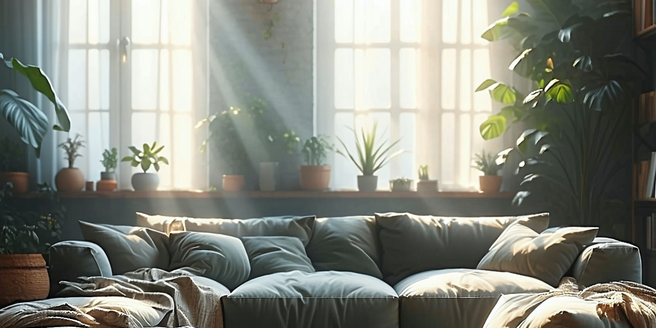
Decluttering Your Space for a Clear Mind
Decluttering your space is an essential step towards achieving mental clarity and reducing stress. By removing unnecessary items, you create a more peaceful and inviting environment. Begin by evaluating each room, identifying items that no longer serve a purpose or bring joy. As you let go of clutter, not only do your physical surroundings transform, but so does your mind. The act of organizing and simplifying leads to reduced anxiety, as visual chaos often mirrors mental turmoil. Consider maintaining a routine decluttering schedule to prevent buildup and keep your space harmonious. This practice enables clearer focus and a sense of accomplishment, effectively setting the stage for more balanced living. Remember, a clutter-free home provides a sanctuary of calm in a fast-paced world.
The Benefits of Minimalist Living
Embracing minimalist living offers a range of benefits that can significantly impact your quality of life. By choosing to own less, you create a home environment that is easier to manage, reducing stress associated with maintaining numerous possessions. The minimalist lifestyle shifts the focus from material accumulation to experiences and meaningful connections. Financially, it encourages saving money by reducing unnecessary spending. Furthermore, minimalism fosters a sense of mental clarity as you free your mind from the burden of excess belongings. It encourages you to prioritize what truly matters, whether it’s spending time with loved ones or pursuing personal passions. The benefits reach beyond the walls of your home, cultivating mindfulness and intentionality in all aspects of life. By simplifying your surroundings, you open up space for relaxation and creativity.
Creating Functional Storage Solutions
Functional storage solutions are key to maintaining an organized and stress-free home. Begin by assessing your storage needs and prioritize solutions that enhance accessibility and convenience. Consider multifunctional furniture such as ottomans with hidden compartments or beds with built-in drawers. Vertical storage options like shelves and hooks maximize space without cluttering floors. Labeling containers can streamline your retrieval process and maintain organization. Creativity is key: repurpose items like jars for office supplies or baskets for living room knick-knacks. The goal is to make every storage solution intentional and efficient, reducing the cognitive load of searching for misplaced items. Thoughtful storage minimizes chaos, allowing your home to support relaxation and functionality. An organized home provides peace of mind, freeing you to focus on what truly matters without the distraction of clutter.
Designing Calm and Inviting Spaces
Designing spaces that promote calmness and invitation is essential in creating a stress-free environment. Start by selecting a soothing color palette with calming hues like soft blues, gentle greens, or neutral tones, which contribute to a peaceful atmosphere. Incorporate natural elements such as indoor plants, which purify the air and boost mood. Pay attention to lighting; utilize natural light wherever possible and consider soft, warm artificial lighting options. Arrange furniture to encourage comfortable gatherings and open flow. Use textures like soft fabrics or cozy rugs to add warmth and comfort. Personalize the space with meaningful decor, ensuring it remains uncluttered and harmonious. The aim is to create a retreat that reflects your style while promoting relaxation and positivity. A thoughtfully designed space serves as a refuge from external stresses and supports overall well-being.
Establishing Daily Cleaning Routines
Implementing daily cleaning routines is a proactive approach to maintaining a tidy and stress-free home. Consistent small actions prevent overwhelming messes and the need for exhausting catch-up sessions. Start by dedicating a few minutes each day to specific tasks, such as making the bed, wiping down counters, or tidying common areas. Establish a rhythm to your cleaning routine by tackling one larger task per day, like vacuuming or dusting. Encourage family members to participate, assigning age-appropriate chores to distribute the workload. Use checklists or schedules to track progress and ensure no tasks are overlooked. Not only do daily routines contribute to a cleaner home, but they also anchor your day with a sense of accomplishment, reducing the mental clutter that results from postponed chores. A clean and orderly environment enhances peace of mind and supports wellbeing.
